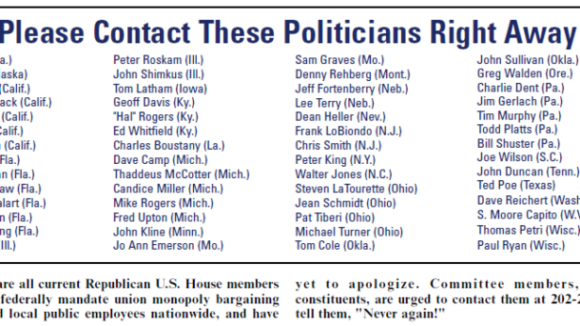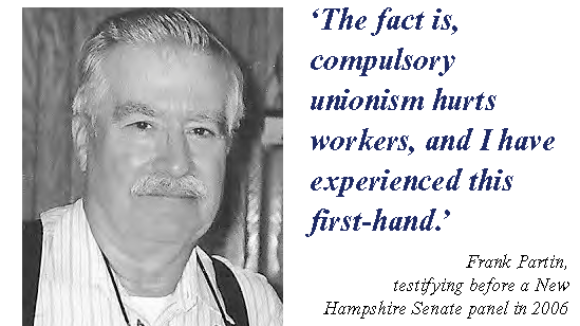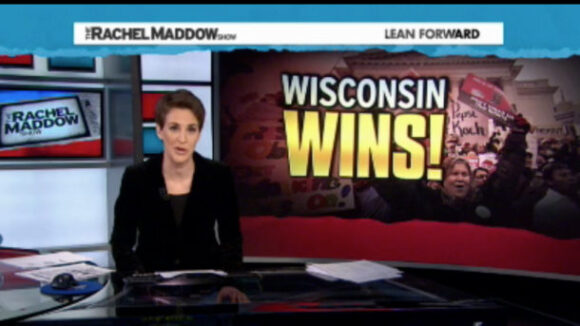Big Labor Disdained 'Alleged Religious Beliefs'
(Source: February 2011 NRTWC Newsletter)
Unjust Firing Helped Make Frank Partin a Right to Work Leader
There are many paths to becoming a leader in the Right to Work movement. Frank Partin's was an unusually difficult one.
In 1973, Mr. Partin was working for Philco-Ford at the New Hampshire Satellite Tracking Station in New Boston, when the facility was targeted by International Association of Machinists (IAM/AFL-CIO) union organizers.
Mr. Partin’s Efforts to Keep His Job Honorably Ran Into Big Labor Wall
The Big Labor campaign soon succeeded, and in short order IAM officials obtained from Philco-Ford a forced-unionism contract with a clause requiring the termination of any employee who refused to become and remain "a member in good standing of the Union" once the contract had been in effect for 30 days.
Mr. Partin's problem was not simply that he didn't want to join the IAM union, but that he couldn't do so without compromising his faith in God.
He was then, and remained for the rest of his life, a member of the Church of the Kingdom, a Christian denomination that teaches, as a matter of doctrine based on its understanding of the Bible, that no member may belong to, join, or participate in any labor union.
But Frank Partin still hoped, for a time, that IAM officials would accept an alternative arrangement he proposed and thus allow him to keep his job without going against the doctrine of his faith.
'We Have No Alternative But to Process Your Termination'
In a letter to the secretary-treasurer of his IAM local, Mr. Partin offered to "donate to the union the equivalent of initiation fees and monthly union dues if it was understood I was not a member of the union, and the union in turn donated that amount to a bona fide charitable organization."
IAM Local 2503 Secretary-Treasurer Dwight Mercer was unmoved.
Even a signed affidavit from Mr. Partin's pastor certifying that he was a member of the Church of the Kingdom and could not remain one if he joined or participated in a labor union did not cause Mr. Mercer to budge.
In an icy letter, dated March 19, 1973, Mr. Mercer sneered that Mr. Partin's "current alleged religious beliefs" did not give him any protection from forced payment of a union initiation fee and full monthly dues. And IAM bosses would spend the conscripted money exactly as they wanted.
Frank Partin refused to compromise his faith in the way the IAM hierarchy demanded. Consequently, on March 28, 1973, he received a letter from Philco-Ford stating that, in accordance with Article II of the union contract (the forced-unionism clause), "we have no alternative but to process your termination as soon as possible."
'He Was the Kind of Guy Who Really Loved Life'
Subscribe to The National Right to Work Committee® Website Updates by Email




